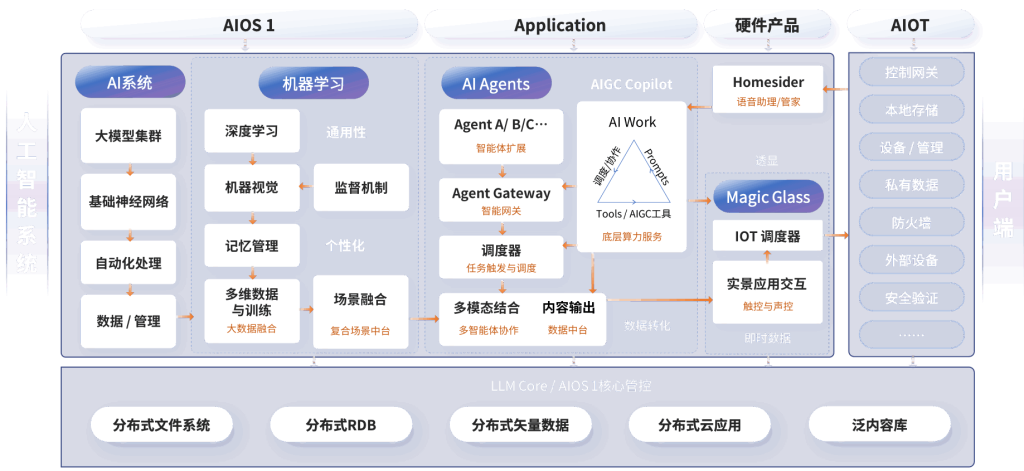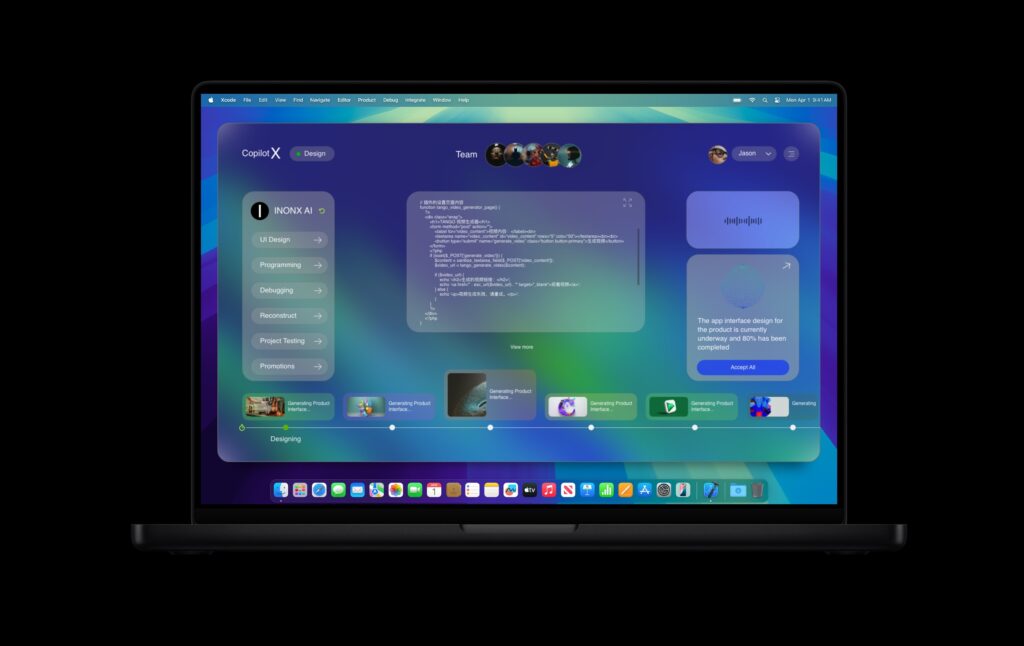The field of Artificial Intelligence (AI) is accelerating at an unprecedented pace, pushing past traditional boundaries and entering realms of sophistication previously thought unattainable. As of 2024, several key advancements have emerged, prominently featuring enhanced large models, innovative tools for businesses, and specialized applications across various industries. This overview will delve into some of the latest developments in AI including Google’s Gemini 1.5 Pro, recent APIs, and emerging technologies aimed at niche areas such as healthcare and cybersecurity.
One of the most anticipated releases in early 2024 was Google’s Gemini 1.5 Pro, an updated version of its groundbreaking AI model. This large language model integrates multimodal capabilities, allowing it to process and generate content in various formats, including text, images, and audio. With an enhanced capacity for context understanding, Gemini 1.5 Pro boasts an extended token limit, accommodating interactions with more extensive datasets without losing accuracy. As noted in an article from *TechCrunch*, the model leverages advanced prompt engineering techniques that enable users to derive more nuanced insights across multiple domains (TechCrunch, 2024).
The introduction of Gemini 1.5 Pro signifies a shift towards Intelligence Augmentation (IA), where AI enhances human capability rather than replacing it. This model is designed not only to automate tasks but also to augment decision-making processes, allowing professionals to leverage AI for complex problem-solving. For instance, healthcare providers can utilize Gemini 1.5 Pro to streamline medical research, analyze patient data for more effective treatment plans, and enhance decision-support systems, facilitating more accurate diagnoses (Bloomberg, 2024).
Following the footsteps of Google, other tech giants are also pushing advancements in AI with robust tools and APIs designed to facilitate cross-industry integration of AI technologies. Companies like OpenAI have rolled out versatile APIs that allow developers to embed advanced AI functionalities into their applications, covering a wide array of tasks from natural language processing to data analysis. These tools simplify the integration of AI into existing workflows, creating a bridge between existing systems and cutting-edge AI technologies. According to a report by *Forbes*, industries ranging from finance to retail are harnessing these APIs to automate customer service, enhance fraud detection, and personalize user experiences (Forbes, 2024).
Moreover, recent advancements in AI have focused on specialized use cases. The development of more reliable and debiased large language models (LLMs) has gained traction in 2024. These models aim to eliminate biases that have plagued many previous iterations, ensuring fairer, more equitable outcomes in their applications. Research from *MIT Technology Review* highlights a consortium of AI developers who are pioneering techniques for debiasing models through enhanced datasets and better training paradigms. Such advancements are critical in sensitive domains like hiring, lending, and law enforcement, where biases in AI can lead to significant societal impacts (MIT Technology Review, 2024).
An emerging area in which AI is making headway is in connected vehicles. The integration of AI technologies in automotive systems is reshaping the way vehicles operate. Features like advanced driver-assistance systems (ADAS) leverage machine learning algorithms to enhance safety through real-time data processing. These vehicles can make autonomous decisions based on various inputs, improving traffic flow and reducing accident rates. The *Journal of AI Research* published findings that demonstrate how AI-enhanced connected vehicles can adapt to driving conditions and potentially save lives (Journal of AI Research, 2024).
In addition to transportation, AI applications are being developed with a focus on neurological health. AI-driven tools are now capable of analyzing brain scans and biometrics to assist in diagnosing conditions like Alzheimer’s and other neurological disorders. The application of AI in healthcare not only enhances the accuracy of diagnoses but also ensures that treatments can be tailored to individual patient profiles. A recent study in the *New England Journal of Medicine* shows promising results where AI algorithms have successfully predicted disease progression in neurological patients, allowing for early interventions that could improve patient outcomes (New England Journal of Medicine, 2024).
The impact of these advancements stretches well into the business automation sector. Innovative AI products are being launched with functionalities aimed at increasing efficiency and productivity. Companies are investing heavily in AI-driven analytics tools that sift through mountains of data to extract actionable insights, helping businesses to make informed decisions quickly. As a result, organizations are leveraging AI solutions to streamline their operations and improve their competitive standing. According to *Harvard Business Review*, businesses that incorporate AI into their workflows are seeing significant ROI, primarily through cost savings and improved service delivery (Harvard Business Review, 2024).
In the creative industries, AI is also making its mark. New platforms empower artists, designers, and marketers to enhance their creative processes with the aid of sophisticated AI tools. Applications that offer generative design capabilities allow creators to explore possible outcomes quickly, freeing them to innovate and iterate at an unprecedented speed. This intersection of technology and creativity is reshaping how projects are conceptualized and executed, unlocking new levels of collaboration and artistic exploration (Wired, 2024).
The future of AI appears to be not only revolutionary but also deeply integrated into the fabric of various industries. As Google Gemini 1.5 Pro and other tools set the stage for what’s next in AI development, organizations must adapt and embrace these technologies to harness their full potential. Whether enhancing healthcare outcomes, driving efficiencies in businesses or creating next-gen connected vehicles, the ripple effects of these technological changes are destined to have lasting impacts.
In conclusion, the ongoing advancements in AI are paving the way for a future where Intelligence Augmentation and AI for specialized applications are becoming the norm. With robust large models like Google’s Gemini 1.5 Pro providing enhanced functionalities and significant strides happening in AI integration across diverse industries, the possibilities are vast. As organizations exploit these technologies to transform their operations, we stand on the brink of a paradigm shift that will redefine human-machine interaction and improve societal outcomes.
As we move forward into 2024, the dialogue around AI’s role should evolve not only to celebrate its achievements but also to critically examine the ethical implications, ensuring a balanced approach that prioritizes equity and benefits for all.
—
Sources:
– TechCrunch. (2024). Google Gemini 1.5 Pro: A New Era in AI.
– Bloomberg. (2024). AI Innovations in Healthcare: Enhancing Decision-Making.
– Forbes. (2024). The Rise of AI APIs in Business.
– MIT Technology Review. (2024). Tackling Bias in AI: New Research Insights.
– Journal of AI Research. (2024). Connected Vehicles and AI: Safety First.
– New England Journal of Medicine. (2024). AI Diagnostics in Neurological Health.
– Harvard Business Review. (2024). ROI from AI Integration in Businesses.
– Wired. (2024). The Role of AI in the Creative Process.


























